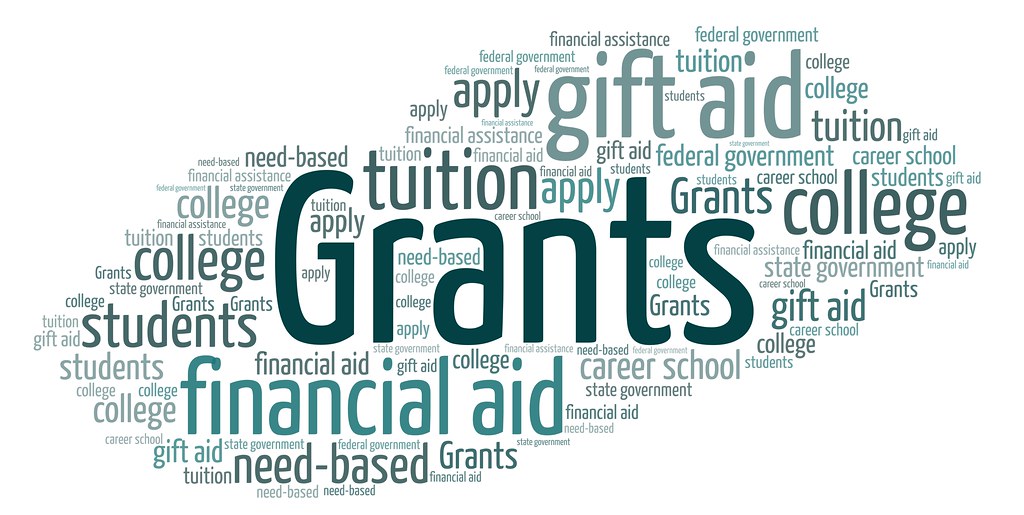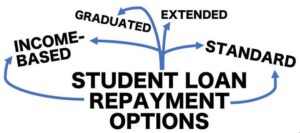
Applying for financial aid can seem daunting, but being prepared and knowing what to expect can make the process much smoother. This comprehensive guide covers all the key things you need to know when applying for financial aid as a student or recent graduate.
Types of Financial Aid Available
There are several main types of financial aid available to students. Understanding the differences can help you determine which options make the most sense for your situation.
Grants
Grants are a type of financial aid that does not need to be repaid, making them one of the best options for students. Grants are generally need-based and depend on your income level and financial situation. Some common federal grant programs include:
- Federal Pell Grants – For undergraduates with exceptional financial need. Grant amounts vary based on need and school costs.
- Federal Supplemental Educational Opportunity Grants (FSEOG) – For undergraduates with exceptional financial need. Awards depend on availability at school.
- TEACH Grants – For students agreeing to teach certain high-need subjects after graduation. Must maintain 3.25 GPA and teach for 4 years.
Scholarships
Like grants, scholarships provide free money for school that does not need to be repaid. Scholarships are generally merit-based and awarded based on academic, athletic, or other achievements. Many scholarships come from:
- Colleges and universities
- Private organizations
- State and local agencies
- Employers
- Professional associations
Tip: Use free scholarship search tools to find options you may qualify for.
Student Loans
Student loans allow you to borrow money for school that must be repaid with interest. Loans come from different sources:
- Federal student loans – Offered by the government and include subsidized (interest-free while in school) and unsubsidized options.
- Private student loans – Loans from private lenders and banks. Generally based on credit and often have higher interest rates than federal.
- Parent PLUS loans – Federal loans parents can take out for dependents in college. Require credit check.
- Graduate PLUS loans – Federal loans graduate students can take out. Requires credit check.
Work Study Programs
Work study allows you to work part-time while in school to earn money that can pay for tuition or other expenses. The two main types are:
- Federal Work Study Program – For undergraduate and graduate students with financial need. Jobs are on campus or with approved offsite organizations.
- State and institutional work study – Offered directly through colleges and states. Availability and eligibility varies.
When to Apply for Financial Aid
Timing is important when applying for financial aid. Be aware of these key deadlines:
- FAFSA Application – Can submit as early as October 1 for upcoming academic year. Priority deadlines range from February to April.
- CSS Profile – Opens October 1. Deadlines vary by college, most between November and February.
- Scholarships – Vary greatly. Can be due as early as fall of senior year of high school or a month before college starts.
- Private Student Loans – Can apply any time but ideally 4-6 weeks before you need funds to allow for processing.
Meeting early priority deadlines maximizes access to aid. If you miss them, still submit as soon as possible in case funds remain.
How to Apply for Financial Aid
Follow these steps to complete the key financial aid applications:
Complete the FAFSA
The Free Application for Federal Student Aid (FAFSA) is essential for federal, state, and college aid.
- Submit as early as October 1 at fafsa.gov.
- You’ll need tax info and lists of assets, investments, and savings.
- List any colleges you are considering.
- Save confirmation page and follow up if anything is missing.
Submit the CSS Profile (If Required)
The CSS Profile provides more financial details for some colleges.
- Check if your colleges require it.
- Submit starting October 1 at cssprofile.collegeboard.org.
- Fee waivers available for qualifying students.
Research and Apply for Scholarships
- Find options through your school counselors, libraries, college websites, and free search sites like Fastweb and Scholarships.com.
- Note all requirements and deadlines. Use a spreadsheet to stay organized.
- Follow instructions carefully and provide all required materials.
Complete Loan/Work Study Applications
- For federal student loans, you just need to accept the loan types and amounts listed on your financial aid award letters.
- Research private loan lenders and submit loan applications if needed. Compare rates and fees first.
- Ask colleges about applying for work study if interested.
Tips for Getting More Financial Aid
Use these strategies to maximize the amount of financial aid you can receive:
- Appeal your financial aid package – If your financial aid doesn’t seem adequate, contact the financial aid office to discuss an appeal for more aid. Provide documentation if income has changed since initial application.
- Apply to FAFSA and CSS Profile early – Meeting priority deadlines gives you the best shot at more aid.
- Consider less expensive colleges – Opt for public or community colleges over higher cost private schools to reduce need and increase aid eligibility.
- Research outside scholarships – Beyond just academics, look for awards based on interests, affiliations, demographics, talents, etc.
- Maintain a high GPA – Keep your grades up to continue qualifying for merit scholarships.
- Enroll in federal work study – Earn extra funds this way and reduce need for loans.
Common Financial Aid Questions
These are answers to some frequently asked questions about financial aid:
| Question | Answer |
|---|---|
| How is financial need determined? | Financial need is the difference between total college costs (tuition, fees, housing, books, etc) and your expected family contribution (EFC) based on FAFSA details. |
| What happens if I submit the FAFSA late? | You should still complete it ASAP – you may still qualify for remaining aid funds. But priority deadlines maximize options. |
| Can I negotiate my financial aid award? | Yes, you can appeal to the financial aid office, especially if family circumstances have changed since applying. Provide documentation. |
| What if my financial aid does not cover my full need? | If you have exhausted all options (grants, scholarships, federal loans, etc), private student loans can help cover remaining costs. |
| Are scholarships taxable? | Generally no, as long as they are used for qualified educational expenses like tuition, fees, books, supplies, and equipment. |
Final Tips for Financial Aid Success
- Begin researching and applying for aid early – aim to submit FAFSA and CSS forms by priority deadlines.
- Be thorough and accurate on all applications – mistakes can delay or jeopardize aid awards.
- Notify colleges if you receive outside scholarships – they will adjust aid packages accordingly.
- Review award letters carefully and appeal if aid seems inadequate.
- Sign up to receive reminders about upcoming financial aid renewals and tasks each year.
- Be cautious when taking out any loans – minimize borrowing whenever possible.
- Look into tuition payment plan options offered by your college. This allows you to spread out tuition payments over the year instead of one lump sum.
- Search for local scholarships in your community. Community foundations, religious organizations, clubs, businesses, etc. sometimes offer small scholarships.
- If your parents have access to a workplace 401k or Flex Spending Account, see if it offers any tax-advantaged college savings options.
- International students should research scholarships and grants specifically for non-US citizens, such as the Fulbright Scholarship.
- Current military members or veterans can utilize GI Bill benefits and military scholarships when attending college.
- Ask colleges about institutional aid for transfer students, non-traditional students, or underrepresented groups if applicable.
- Check out student loan forgiveness programs for certain careers like teaching, public service, or medical fields.
- Use student loan repayment estimators to forecast future monthly payments and ensure it is affordable.
- Attend college fairs and financial aid events to speak directly with experts about options.
Applying for financial aid takes time and effort, but is worthwhile if it helps you afford college costs. Stay organized, meet deadlines, and utilize all options available to you!







